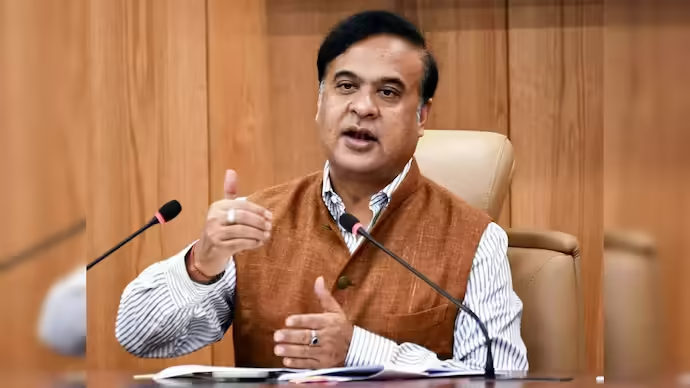Assam Passes Anti-Polygamy Bill: What It Means for Offenders and Women’s Rights
The Assam government has moved closer to implementing a landmark reform with the Cabinet’s approval of the Assam Prohibition of Polygamy Bill, 2025, which aims to outlaw the practice of polygamy in the state. The proposed legislation will be introduced in the upcoming Assembly session scheduled to begin on November 25.
Chief Minister Himanta Biswa Sarma , announcing the decision after the Cabinet meeting on Sunday, said the Bill includes strict penalties for offenders. “Today, the Cabinet has approved the Assam Prohibition of Polygamy Bill 2025 . Anybody, after the passing [in the Assembly] of this Bill, marrying for the second or third time will face imprisonment for seven years. And in this Bill, this offence has been made a cognizable offence, meaning they will not be given bail immediately,” he said.
The Bill also proposes setting up a special compensation fund for women who are victims of polygamy. CM Sarma explained the intent behind the provision: “After the man is imprisoned, what will happen to the woman? Or, if she is a man’s second wife without her knowledge, the woman is the victim. Sometimes, the first wife is sent away from the house after a man marries a second woman. So, [to ensure] that no woman becomes a victim, we will keep a compensation fund.” He further clarified that the amount and eligibility criteria for compensation would be defined when the detailed rules are framed.
However, the Bill will not apply to Scheduled Tribe communities or areas governed under the Sixth Schedule of the Constitution, including the Bodoland Territorial Council (BTC), Dima Hasao, and Karbi Anglong. “Tribal people will be excluded because they have some customs. And in Sixth Schedule districts, which are those in the BTC (Bodoland Territorial Council), Dima Hasao, and Karbi Anglong, these Bills will not be implemented immediately… So in the Sixth Schedule areas, if a minority Muslim has been there prior to 2005, he will also be exempted,” Sarma said.
The Assam government first announced its intent to bring such legislation in 2023, forming a committee led by retired Gauhati High Court judge Justice Rumi Phukan to assess the state’s legal authority to enact an anti-polygamy law. The proposal was temporarily held back after Uttarakhand introduced a Uniform Civil Code (UCC) in 2024. Sarma later stated that Assam would align its law with the UCC framework to ensure uniformity and legal consistency.
With this Bill, Assam joins the list of states taking legislative measures toward uniform family laws, signalling a broader push for gender justice and equality in marital rights.

Chief Minister Himanta Biswa Sarma , announcing the decision after the Cabinet meeting on Sunday, said the Bill includes strict penalties for offenders. “Today, the Cabinet has approved the Assam Prohibition of Polygamy Bill 2025 . Anybody, after the passing [in the Assembly] of this Bill, marrying for the second or third time will face imprisonment for seven years. And in this Bill, this offence has been made a cognizable offence, meaning they will not be given bail immediately,” he said.
The Bill also proposes setting up a special compensation fund for women who are victims of polygamy. CM Sarma explained the intent behind the provision: “After the man is imprisoned, what will happen to the woman? Or, if she is a man’s second wife without her knowledge, the woman is the victim. Sometimes, the first wife is sent away from the house after a man marries a second woman. So, [to ensure] that no woman becomes a victim, we will keep a compensation fund.” He further clarified that the amount and eligibility criteria for compensation would be defined when the detailed rules are framed.
However, the Bill will not apply to Scheduled Tribe communities or areas governed under the Sixth Schedule of the Constitution, including the Bodoland Territorial Council (BTC), Dima Hasao, and Karbi Anglong. “Tribal people will be excluded because they have some customs. And in Sixth Schedule districts, which are those in the BTC (Bodoland Territorial Council), Dima Hasao, and Karbi Anglong, these Bills will not be implemented immediately… So in the Sixth Schedule areas, if a minority Muslim has been there prior to 2005, he will also be exempted,” Sarma said.
The Assam government first announced its intent to bring such legislation in 2023, forming a committee led by retired Gauhati High Court judge Justice Rumi Phukan to assess the state’s legal authority to enact an anti-polygamy law. The proposal was temporarily held back after Uttarakhand introduced a Uniform Civil Code (UCC) in 2024. Sarma later stated that Assam would align its law with the UCC framework to ensure uniformity and legal consistency.
With this Bill, Assam joins the list of states taking legislative measures toward uniform family laws, signalling a broader push for gender justice and equality in marital rights.
Next Story